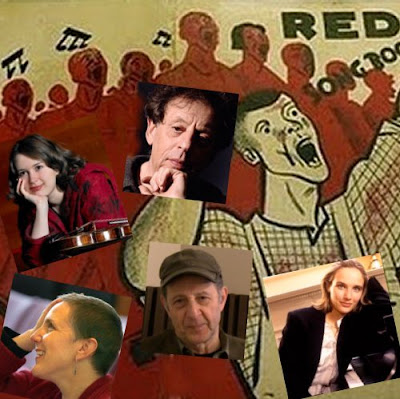Return of the night watchman

BBC Radio 3's mercifully Petroc Trelawny-free Proms relay of Die Meistersinger plays as I write. Listening to Act II reminded me of a long forgotten detail of the legendary 1968 Sadlers Wells production of the opera conducted by Reginald Goodall (and later by Charles Mackerras) and produced by Glen Byam Shaw and John Blatchley.
The night watchman has a small but vitally important role at the end of Act II. As the riot subsides he makes his second appearance to sing 'Watch out for ghosts and goblins, lest an evil affright your soul' and, after a G flat on his horn, peace is restored and the curtain falls. It is one of the most magical moments in all music and for this reason the role attracts top singers. But that is his last appearance as Wagner gave him no part in the valedictory final act. This not withstanding the producers at Sadlers Wells in 1968 created a non-singing role for the night watchman in the festival meadow scene. As the guilds entered he took their emblems for ceremonial display and later, at the climactic moment of the opera, brought forward the victor's laurel for Pogner to present to Walter. They were small additions, but were so effective in enhancing the continuity of the narrative that Wagner himself must surely have approved.
That perfect Wagnerite and even more perfect purveyor of English prose Bernard Levin chose the 1968 Sadlers Wells Mastersingers as one of three 1960s operatic "experiences as intense as any art can offer". The other two were Covent Garden's 1961 Fidelio conducted by Dr Otto Klemperer and Georg Solti's 1967 Die Frau ohne Schatten.
Now for a quick quiz: who said?
I once said that Meistersinger is really one of Richard Wagner's finest operas, so since then it's supposed to be my favourite opera and I don't get to hear anything else.'For less than perfect Wagnerites the answer is here.
In The Pendulum Years, Britain in the Sixties Bernard Levin writes far more eloquently than I ever could of the Sadlers Wells/ENO English language Mastersingers and this post stands in his shadow. Copies of The Pendulum Years can still be found. Header image is set design by Max Bruckner for the 1888 Bayreuth Die Meistersinger. Any copyrighted material on these pages is included as "fair use", for the purpose of study, review or critical analysis only, and will be removed at the request of copyright owner(s). Report broken links, missing images and errors to - overgrownpath at hotmail dot co dot uk









Comments
I had some reservations, including coarse grained vocal textures in Act I and an orchestral sound that lacked transparency, but these may have been due to the BBC sound balance as I was listening to an FM broadcast.
Overall though a wonderful evening. But, oh please...
http://blogs.telegraph.co.uk/culture/damianthompson/100045048/best-prom-ever/
I also saw Klemperer when he reurned to conduct Fidelio with Anja Silja, so I almost saw all three on Levin' list. How we miss his wit and critical acumen.